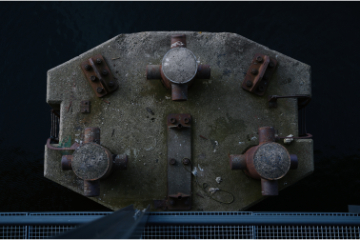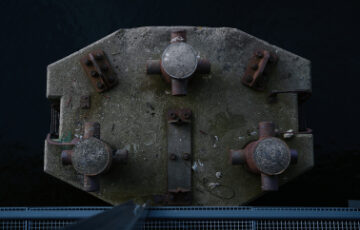
Imagine you’re a shareholder in a Dutch business, but you’ve found yourself in a conflict with other stakeholders. This is a common scenario in the Netherlands, often leading to shareholder disputes that can disrupt the company’s operations. The Netherlands Enterprise Court (“Ondernemingskamer”) plays a crucial role in these situations, as it has the authority to conduct investigations and even suspend directors to resolve deadlocks. In this detailed analysis, we’ll delve into a real-life case of a family dispute, demonstrating how the Dutch judicial system handles such conflicts. Join us in exploring the complexities of Dutch business law and the protective measures in place for shareholders.
Key Takeaways
- Shareholder disputes in the Netherlands can disrupt business operations and lead to deadlocks and conflicts.
- The Dutch law offers mechanisms to manage and resolve shareholder disputes, including the use of shareholder agreements and court intervention.
- Dutch law firms play a crucial role in providing legal advice, strategies, and representation in shareholder disputes in the Netherlands.
- Shareholder agreements under Dutch law are important in preventing disputes and protecting interests, and legal advice is crucial in drafting effective agreements.
What Are Shareholder Disputes and How Are They Handled Legally?
Shareholder disputes under Dutch law are common in the realm of corporate law, encompassing a range of conflicts among shareholders of a company. These disputes can significantly impact the operations and decision-making processes within a business. Understanding the legal framework surrounding these conflicts is crucial for any shareholder, director, or corporate lawyer.
The Legal Framework for Shareholder Disputes in Dutch Corporate Law
In Dutch corporate law, shareholder disputes are primarily addressed through specific legal procedures designed to resolve conflicts efficiently and equitably. These procedures apply to various types of corporate entities, including Besloten Vennootschap (B.V.) and Naamloze Vennootschap (N.V.).
Ousting and Exiting Regulations in Shareholder Disputes
The Dutch legal system provides mechanisms for both ousting and exiting shareholders in case of disputes. The ousting regulation enables shareholders, holding a significant portion of shares, to legally compel the sale of another shareholder’s stake, especially when their actions detrimentally affect the company. Conversely, the exiting regulation allows a shareholder to force others to buy out their shares at a market-compliant price under certain conditions.
Common Shareholder disputes, triggers and legal implications under Dutch law
Shareholder disputes are common in the realm of corporate law, encompassing a range of conflicts among shareholders of a company. These disputes can significantly impact the operations and decision-making processes within a business. Understanding the legal framework surrounding these conflicts is crucial for any shareholder, director, or Dutch corporate lawyer.
Shareholder disputes arise from various sources. Common triggers include disagreements over business direction, profit distribution, executive appointments, and new share issuances. These conflicts often stem from perceived mismanagement or conflicts of interest within the board.
The Role of Enquiry Procedures in Resolving Disputes
The enquiry procedure is a vital tool in Dutch corporate law for investigating the management and affairs of a company during shareholder disputes. This procedure, initiated upon request by shareholders holding a specified percentage of the company’s capital, can lead to investigations by the Ondernemingskamer, potentially influencing subsequent legal actions.
Addressing Invalid or Voidable Decisions in Dutch Shareholder Conflicts
In shareholder disputes, the legality of decisions made by the company’s board or general assembly is often contested. Dutch law allows for the annulment of decisions not compliant with statutory or legal requirements, ensuring fairness in corporate governance.
Separation Scenarios for Shareholders in the Netherlands
When shareholders decide to part ways due to disputes or other reasons, they often turn to share transfers. Various mechanisms, including asset division and share sale agreements, are used to facilitate this process, balancing the interests of all parties involved.
Provisions for Share Offerings and Transfer Rights under Dutch law
Many shareholder agreements and company statutes include clauses for share offerings in specific circumstances. Additionally, drag along and tag along rights play a crucial role in ensuring fair processes during the sale of company shares to third parties.
Understanding Shareholders Disputes in the Netherlands
As a shareholder in a Dutch company, you must understand how disputes can impact the business and your role within it. Shareholder disputes in the Netherlands, particularly those involving deadlocks from equal share ownership, can significantly disrupt business operations. Dutch law, and more specifically Dutch corporate governance, offers mechanisms to manage and resolve these conflicts.
In the general meeting, shareholders make crucial decisions, including board appointments and salary determinations for the managing director. However, conflicts can arise, leading to legal battles or stagnation in decision-making. To prevent this, it’s advisable to establish a shareholders agreement. This legal document outlines the rights and obligations of shareholders, preventing future disputes and protecting shareholder interests.
Dutch law also provides for shareholder buyouts, a complex process often requiring legal advice. A recent bill aims to simplify these proceedings by expanding the grounds for forced exit and buy-out.
Ensuring good corporate governance involves understanding and navigating these potential disputes. As a shareholder, you should stay informed about these aspects of Dutch law to protect your interests and contribute positively to your company’s operations.
Legal Framework in the Netherlands
Understanding the Dutch legal framework is crucial for you as a shareholder, especially when dealing with potential disputes. The Netherlands has a robust and flexible system that protects shareholder rights and provides mechanisms for dispute resolution.
At the heart of the Dutch legal framework is the Dutch Civil Code, which defines the rights and obligations of shareholders. Important decisions, such as executive salaries, are determined in the general meeting of shareholders. You also have the right to enter into shareholders’ agreements that can include various arrangements to protect your interests.
In case of disputes, you can turn to the Netherlands Enterprise Court, a specialized court that deals with corporate disputes, including shareholder disputes in the Netherlands. This court has the power to order investigations into company policies and affairs and can take measures to break deadlocks, as seen in recent cases.
Moreover, the Dutch legal framework includes provisions for buy-out arrangements, offering you an exit strategy if disputes become unmanageable. In short, the Dutch legal system is designed to provide you with the tools and protections you need to confidently navigate and resolve shareholders disputes in the Netherlands.
Common Causes of Dutch Shareholder Disputes
While you’re navigating the Dutch legal system, you’ll find that several common causes can trigger shareholders disputes in the Netherlands. One of the most typical triggers is disagreements in the general meeting of shareholders. When a shareholder disagrees with the company’s policy, it can lead to conflicts.
The role of the majority shareholder can also be contentious. Majority shareholders may attempt to exclude or disregard the interests of minority shareholders, which can easily give rise to disputes. This disregard can manifest in various ways such as unequal distribution of dividends or lack of transparency in decision-making.
Deadlock situations, where two groups of shareholders each hold 50% of shares, also contribute to common causes of Dutch shareholder disputes. This creates a stalemate in decision-making, leading to operational hindrances and potential legal battles.
Lastly, buyout conflicts can stir up disputes. This happens when a shareholder aims to own 100% of the company, leading to disagreement and possible litigation.
It’s crucial to understand these common causes, as shareholder disputes can significantly impact both shareholders and the company’s operations, necessitating immediate and effective resolution.
The Role of Dutch Law Firms
In handling your shareholders disputes, a Dutch law firm’s expertise can be invaluable. These firms excel in providing top-notch legal advice on establishing shareholders agreements, offering preventive measures to avoid future issues and unnecessary costs.
Their role is crucial in advising on the best strategies to handle shareholders disputes in the Netherlands, including representation in the Enterprise Division of the Amsterdam Court of Appeal. Corporate law experts within these firms play a pivotal role in handling urgent remedies and preventative measures, ensuring your shareholder’s agreement is properly drafted.
Navigating complex buy-out arrangements in the Netherlands? Dutch law firms are crucial in ensuring fair valuation of shares and balancing the rights of minority shareholders with the company’s interests. They have a knack for striking a balance between expediting dispute resolution proceedings and ensuring safeguards. Their focus on procedural improvements leads to better outcomes in shareholder disputes.
Implications of a Deadlock under Dutch law
If you’re part of a shareholders dispute that’s reached a deadlock in the Netherlands, you’ll quickly find that it’s a situation with significant implications for both you and the company. A deadlock under Dutch law occurs when decision-making grinds to a halt due to equal shares held by two parties, casting a shadow over the company’s future.
Being involved in such a dispute can lead to a tense and challenging environment. Majority shareholders may try to sideline the interests of minority shareholders, exacerbating the friction. This not only undermines corporate harmony but also potentially hampers the business’s day-to-day operations.
Under Dutch law, a deadlock may necessitate immediate intervention. This could involve measures like the appointment of a director who holds a casting vote, ensuring that the company’s operations continue smoothly.
Thus, the implications of a deadlock under Dutch law are far-reaching. They underline the importance of prompt, effective resolution of shareholders disputes in the Netherlands to prevent harmful impact on the company. After all, a well-functioning company is beneficial for all its shareholders.
Navigating Dutch Shareholders Agreements
Navigating Dutch shareholders agreements is a critical step you’ll encounter after a deadlock, requiring careful attention to detail and understanding of the law. These agreements, often established by Dutch private corporate lawyers, are vital in determining significant issues in the general meeting of shareholders and help in preventing future disputes.
When navigating Dutch shareholders agreements, you’ll encounter terms related to profit appropriation and issuing new shares. It’s crucial to understand these terms, as they can deeply impact your stake in the company.
If disputes arise, you may need to explore buy-out arrangements. This process can be complex, and legal advice is essential for proper navigation. Proposed amendments aim to simplify these proceedings in the Netherlands by extending thresholds for forced exit and forced buy-out.
Exploring Shareholder Buyouts under Dutch law
When you’re exploring shareholder buyouts under Dutch law, it’s crucial to understand that there are several provisions for both minority and majority shareholder situations. The Dutch Civil Code is explicit in outlining the complexities and alternative methods involved in these buyouts.
| Shareholder Buyout | Dutch Civil Code (Book 2) | Majority vs Minority Shareholders |
|---|---|---|
| Buyout arrangements | Complex provisions | Different rules apply |
| 100% ownership aim | Legal advice necessary | Balancing rights involved |
| Court Intervention | Enterprise Chamber (Ondernemingskamer) + District Court | Dispute Resolution |
| Proposed amendments | Simplify proceedings | Fair valuation of shares |
Whether it’s a majority shareholder seeking to acquire a 100% ownership stake, or a minority shareholder looking to sell their shares, the law caters to both scenarios. The proposed amendments to Dutch law aim to simplify dispute resolution proceedings, including forced exit and buyout arrangements. This offers a fair valuation of shares and ensures a balance in the rights of minority shareholders.
Choosing the Right Dutch Corporate Lawyer
In light of these complexities in shareholder disputes and buyouts, you’ll need to ensure you’re choosing the right Dutch corporate lawyer to guide you through the process. This selection isn’t a task to take lightly, as their expertise can significantly impact the outcome of your case.
Choosing the right Dutch corporate lawyer begins with considering their experience in shareholders disputes in the Netherlands. They should be well-versed in the intricacies of Dutch law and have a successful track record in handling similar cases. The lawyer’s ability to effectively represent your interests before the Enterprise Division of the Amsterdam Court of Appeal can be a critical factor in resolving disputes.
The lawyer’s role extends beyond litigation. They should be proficient in drafting shareholders agreements to prevent future disputes and costs. Furthermore, they should provide sound advice on complex buy-out arrangements, ensuring your interests are well-protected.
Profile: MAAK Attorneys in the Netherlands
Why choose MAAK Attorneys for handling your shareholder’s disputes in the Netherlands? One compelling reason is their extensive experience in tackling such corporate disputes under Dutch law. This dedicated team of Dutch lawyers is adept at handling urgent remedies and has a proven track record of representing clients before the Enterprise Division of the Amsterdam Court of Appeal, the court that has jurisdiction over complex corporate matters.
MAAK Attorneys aren’t just reactive; they’re proactive advisors. They provide strategic advice on preventing disputes from escalating, thus safeguarding your interests. But when necessary, they won’t hesitate to take matters to court, using their expert knowledge in corporate law to secure a favorable outcome for you.
For those planning to start a company in the Netherlands, MAAK attorneys offer invaluable legal counsel. Their specialization in Dutch corporate law ensures your venture is on solid legal footing from the outset.
In a nutshell, MAAK Attorneys are a reliable partner for you in the Netherlands, whether you’re navigating shareholder disputes or setting up a new company. Their strength lies in their strategic approach, courtroom prowess, and deep understanding of the intricacies of the Amsterdam Court of Appeal.
Legal Services in Amsterdam
Before you find yourself entangled in a shareholder dispute, it’s time to consider the legal services available in Amsterdam. Legal services in Amsterdam are well-equipped to handle shareholders disputes in the Netherlands, providing expert advice on corporate law, establishing shareholders agreements, and offering strategic solutions to prevent future problems.
| Service | Description |
|---|---|
| Advice on establishing shareholders agreements | Prevent future disputes and expense by setting clear, agreed-upon rules from the start. |
| Representation in court | Experienced attorneys can represent you in shareholder dispute cases before the Enterprise Division of the Amsterdam Court of Appeal. |
| Legal advice on buy-out arrangements | Navigate the complex process of buy-out arrangements for shareholders with the help of expert advice. |
| Drafting shareholders agreements | Ensure your interests are protected with properly drafted shareholders agreements. |
These services are not just reactive but proactive, preventing disputes before they occur. Skilled Dutch corporate lawyers in Amsterdam can guide you through the intricacies of corporate law, ensuring that your interests are protected and potential disputes are mitigated. When faced with shareholders disputes in the Netherlands, remember, the right legal assistance in Amsterdam can make all the difference.
Power Dynamics in Dutch Companies
Understanding the power dynamics within Dutch companies is essential when navigating shareholder disputes in the Netherlands, as it can significantly influence the outcomes. The shareholders’ meeting of a Dutch private limited company holds tremendous power, determining key issues and appointing the board of management. This can lead to conflicts, particularly when majority shareholders attempt to sideline minority shareholders, creating a deadlock.
In such situations, the voting rights of shareholders play a crucial role. Majority shareholders often hold sway, but minority shareholders aren’t without recourse. They’ve the right to request an investigation into the company’s policies and affairs, as seen in the case of the feuding brothers and their father.
To avoid these disputes, it’s advised to establish a well-drafted shareholders agreement. This document can prevent future issues and costs, demonstrating the importance of legal advice in shaping power dynamics in Dutch companies. Further, experienced attorneys can provide advice on the best approach to prevent problems and—if necessary—take cases to court.
Understanding these dynamics is essential in effectively managing and resolving shareholder disputes.
Frequently Asked Questions
What Are the Options for Shareholder Disputes?
You’ve several options for settling disputes: inquiry proceedings, forced exit and buy-out proceedings, or a comprehensive shareholders agreement. If there’s a deadlock, you can seek legal advice or take urgent legal remedies.
What Happens When Shareholders Disagree?
When shareholders disagree, it can lead to decision-making deadlocks and operational issues. It’s essential you address these disputes promptly to prevent negative impacts on business operations and shareholder relationships.
How Do You Resolve Shareholder Conflict?
To resolve shareholder conflict, you’d typically initiate dialogue, use mediation, or involve a neutral third-party arbitrator. If necessary, consider legal action, but remember, it’s best to prevent disputes with a well-drafted shareholder agreement.
Conclusion
As you navigate the tricky terrain of Dutch shareholders disputes, remember: you’re not alone. The Netherlands Enterprise Court holds the power to intervene, break deadlocks, and protect your interests.
This complex web of relationships and power dynamics can be daunting, but with the right legal guidance, you can emerge victorious. So, stay tuned, as we delve deeper into the intricacies of Dutch business law, exploring the delicate balance of power in Dutch companies.







